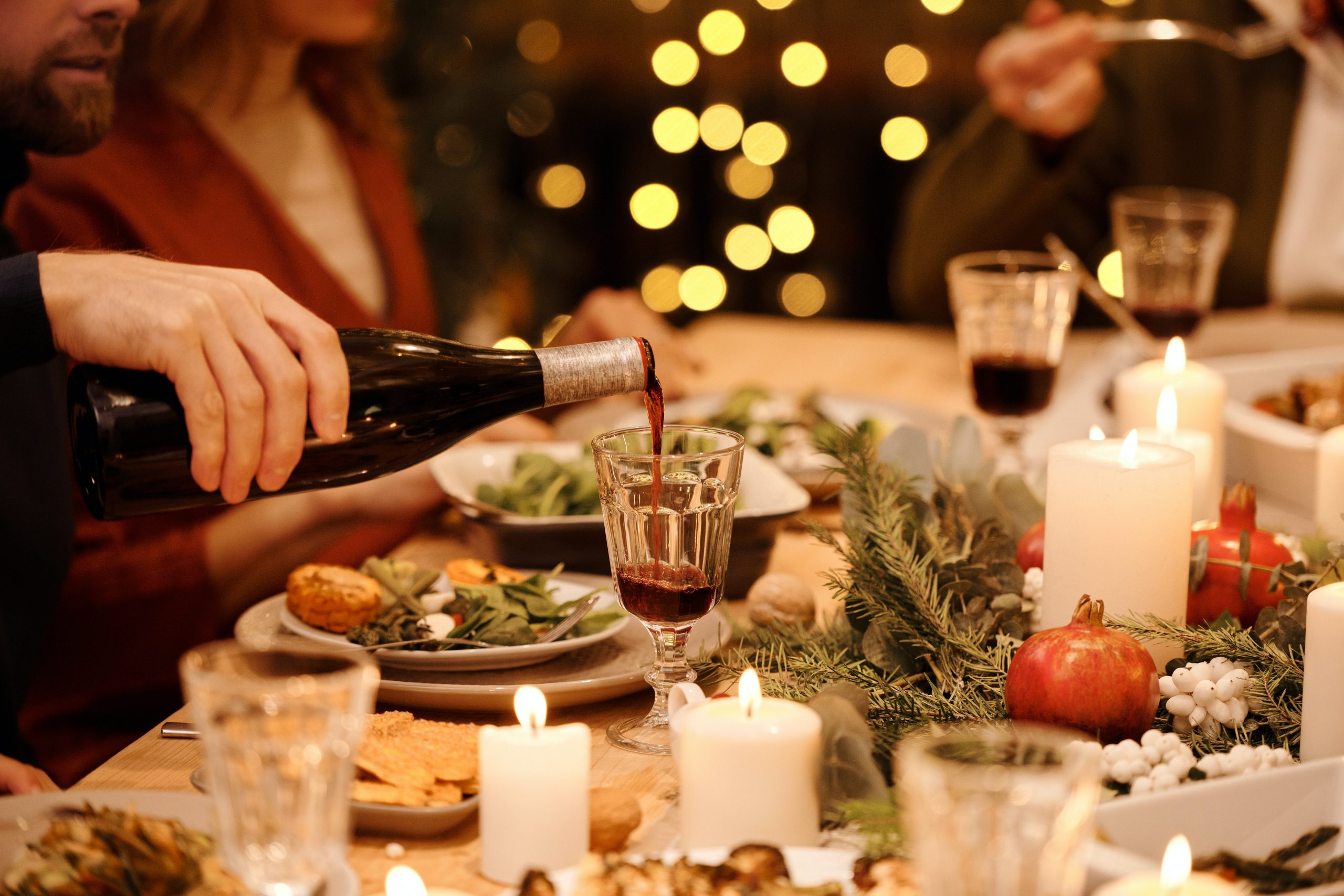I usually find my clients have mixed feelings about this time of year. Hidden behind their excitement is a fear that there will be an inevitable weight gain and a need for a diet – or even Dry January – the moment the decorations go back in the box.
The harsh reality is that many people dread what Christmas does to their health.
But Christmas doesn’t have to be a dance between deprivation and over-indulgence. It’s a question of balance. By balance I don’t mean have kale 80% of the time and an entire party platter of sausage rolls the rest. It’s a question of figuring what matters most to you.
When you go to buffet parties or events the food looks delicious and there is a very subtle fear that you are never going to be able to have any of these delicious treats ever again. The fear of missing out activates your survival instinct to consume everything and anything. And so you go on a binge, and your healthy eating plans are obliterated. The self-recriminations start.
We are culturally programmed to put more importance on the food we may be missing out on, and less on our goals and wellbeing.
The big question, of course, is what are you really missing out on? Nothing. OK, maybe some sweet or high-carb treats, some booze-filled evenings and such. But eating and drinking these have a flipside: blood sugar imbalance and energy crashes, poor sleep, almost certain weight gain (if you consume in excess) – and that’s without mentioning the negative self-talk for having over-indulged.
There are several things going on when it comes to food. Your fear of ‘missing out’ on that delicious dessert or scrummy sausage roll is the first. But also refusing food (though it should be a basic human right) is mired in emotional meaning both for you and for the host.
And what if you have to own up to eating healthily around this time or being gluten- or dairy-free? this seems to compound the original offence of not wanting to eat.
However, not wanting to overstuff yourself with sausage rolls doesn’t say anything about your relationship with food, how you feel about the host or whether you are having a good time. You just don’t want the sausage rolls!
When discussing goals with my clients I spend time testing them by asking ‘what if….’, this really helps to predict challenges they may face so they can prepare a plan to help keep on track with their goals.
This approach so works when keeping to the goal of having a fun evening but keeping to your healthy eating habits. My suggestions for an action plan to keep you on track are:
HAVE A PLAN – Before you go to bed each night, plan out your food for the next day. This is never truer than at Christmas, when parties, chocolates, cookies and “treats” are just about everywhere.
DON’T TRY TO DIET JUST NOW – Set a maintenance goal instead. This is much more realistic, and it is achievable, even at this time of year. It will also give you the freedom to enjoy yourself without feeling deprived, or that you’ve failed, which in turn means you’re more likely to give up (and this is code for heading straight for the box of chocolates without a second glance).
WATCH YOUR PORTION SIZES – my clients know I am particularly focused on portion sizes, especially when it comes to fast-release carbs like white potatoes, pastry, breaded items, cakes, biscuits and other sweet things. When eating from a buffet, it is far too easy to overload your plate and keep going back for more.
DON’T GO TO A PARTY HUNGRY – If you do, you will be fighting a losing battle. Have a low-GL snack before you go – just a little something that includes protein and slow-release carbs (cottage cheese or unsweetened nut butter on an oatcake, for example).
With a little thought and time planning you can enjoy all the festivities AND stay healthy at the same time.
If you find you need more help with your food choices or health goals call me to book a free 20 minute health review where I will provide advice tailored to you and your specific goals.




